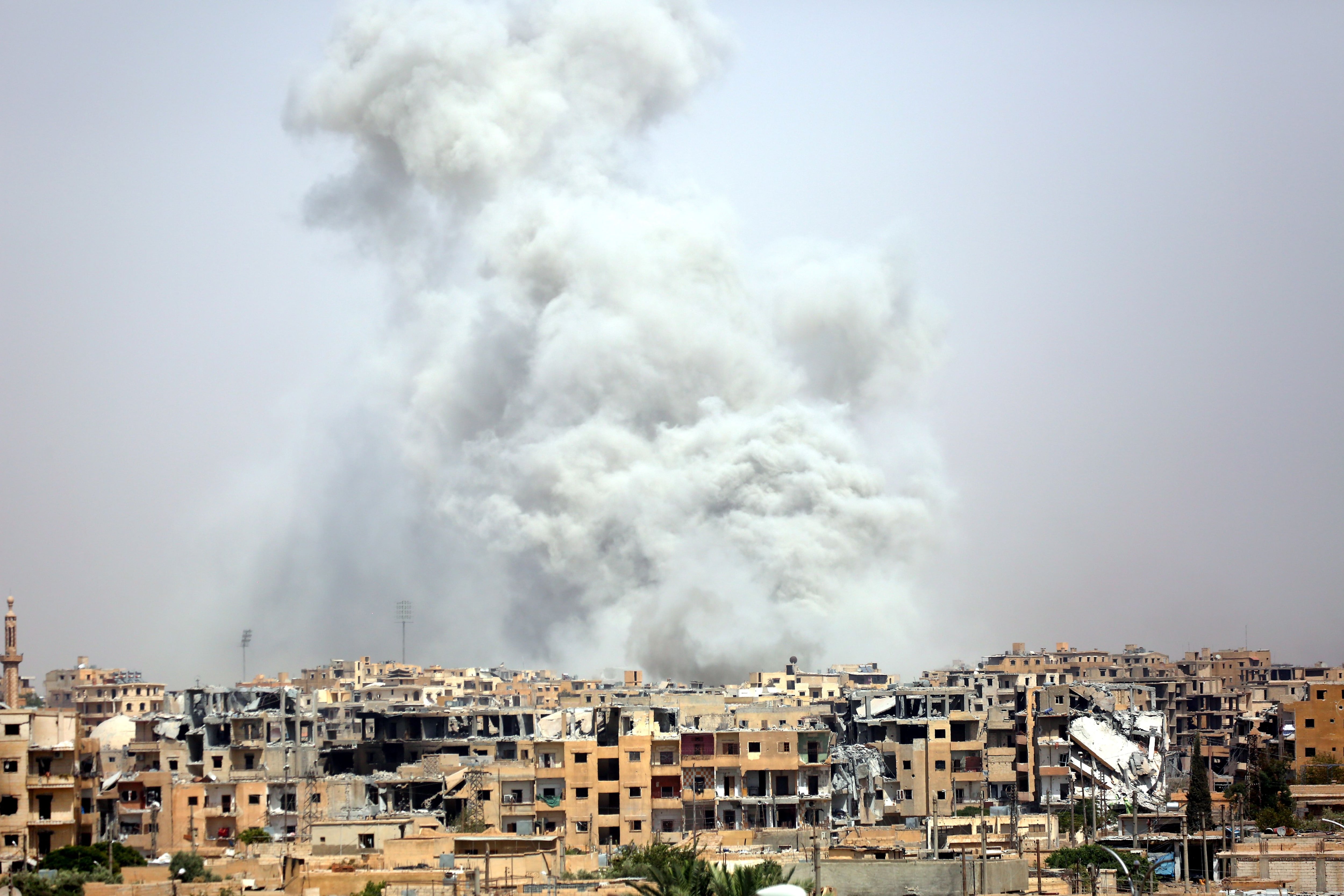WASHINGTON — Calls by United Nations officials to halt the coalition air campaign in Raqqa, Syria, will only reinforce the Islamic State’s tactic of using human shields and put more civilians in harm’s way, U.S. military officials said.
Any pause also would strengthen the terror group’s defensive positions in the embattled city, according to Army Col. Joseph Scrocca, a spokesman for Operation Inherent Resolve.
On Thursday morning, Jan Egeland, the special adviser to the UN Special Envoy for Syria, called for a halt to the coalition air campaign to help reduce civilian casualties and protect the nearly 20,000 civilians estimated to be trapped with ISIS fighters.
Officials in Baghdad have often scoffed at repeated claims of large numbers of civilian casualties in Raqqa. Army Lt. Gen. Stephen Townsend — the commanding general for the fight against ISIS in Iraq and Syria — this week said he would need to see “hard information” to back up the claims.
RELATED

“If ISIS believes unsubstantiated allegations of civilian casualties will put a halt to Coalition operations, they will increase their use of human shields to delay their inevitable defeat, which will of course put more civilians at risk, Scrocca told Military Times. “This is exactly what ISIS wants.”
According to Scrocca, based on coalition assessments, at least 624 civilians have been killed unintentionally by the coalition since the start of Operation Inherent Resolve. To date, “the coalition has received 1,101 reports of possible civilian casualties, and 151 were assessed to be credible,” he said.
Scrocca also hit back at some of the organizations that report civilian casualty counts.
“Most of our critics do not conduct such detailed assessments and often rely on scant information, which frequently comes from single unreliable sources,” he said. “We hold ourselves accountable with an open and transparent process to assess allegations of civilian casualties, and we publish these findings on a regular basis for the world to see.”
The battle for Raqqa, much like Mosul, is difficult, Scrocca said. Commanders often have to strike a delicate balance between the speed of an operation and protecting civilians and infrastructure.
Sometimes, slowing down the pace of operations can put civilians at more risk, as was the case in Mosul, where a large segment of the population faced starvation behind ISIS lines, he added.
“The Coalition’s goal is always for zero human casualties,” he said. “We apply rigorous standards to our targeting process and take extraordinary efforts to protect non-combatants.”
Shawn Snow is the senior reporter for Marine Corps Times and a Marine Corps veteran.





